Siwa: A Wild West Town in Egypt
There is something about the desert that sends folk stir crazy, and Siwa, a Wild West town in Egypt’s Western Desert, is about as crazy as they come.
The northernmost oasis on the ancient oasis route that runs west into Libya and south into Sudan through some of the most savage desert in the world, Siwa is, quite frankly, unique.
Half mafia town, half backpacker hangout, extremely conservative yet awash in alcohol, hashish, guns and (yes, still) gay sex, packed with phenomenally kindly folk who run everything from shampoo and toothpaste to drugs and AK47s out of Libya, you could spend half a lifetime in Siwa and never understand it.
A Berber warrior town for many centuries, the crumbling remnants of an old mud fort where villagers lived and strangers died unpleasant deaths loom over the town square like the shattered jaw of an ancient skull.
Out through the palm groves, near a salt lake of surreal beauty, a second fort surrounds the temple of the oracle which pronounced Alexander the Great the son of Amun-Ra, or Jupiter Ammon – godhead being the natural next step for a man who’d already conquered almost the whole known world, aged only 25.
The spiritual whiff-whaff that emanates, leyline-style, from such a place, along with the extremely potent hash, freshly imported so hardly cut, makes Siwa as close to a hippie mecca as Egypt gets.
Which doesn’t stop it being traditional.
Siwa was the last place in Egypt to allow same-sex marriage, although this has been banned for the big end of a century now, and, while the more feminine man can expect the kind of blatant, hungry, strip-you-naked stares that Western women experience elsewhere in Egypt, the unwise cruiser is headed for a bruising.
Almost everyone here, whether Berber, with blue eyes below Afro-tight curls, Bedouin or an import from the Mediterranean coast, wears robes. Siwi wedding rituals, where the bride is kidnapped on her way from a spring, still recall the more brutal habits of the past.
And, after her wedding, a woman disappears. Outside the home, married women wear a thick black cloth that completely obscures the face, without even the mesh that alleviates the Afghani burka, offering only a vague perception of shadows in the world beyond, even in the glaring desert sun.
Why? So only their husbands can look upon their faces, as a brandy-swilling Christian, a man transplanted from Anthony Burgess’ Malay Trilogy out into the Egyptian desert, explained to me, in between imprecations at Siwa’s myriad and inharmonious calls to prayer.
I didn’t get close to these women, these mafia ladies, their faces a blank, dehumanised wall, though I would have loved to talk with them.
We saw them, most of the time, swaddled in layers of shawls like so many semi-animated Russian dolls, shuttling around town in the donkey carts that are still the short-hop vehicle of choice here. Here, once married, a woman can no longer work outside the home.
A town of under 25,000 souls, Siwa is 300 kilometres from the nearest city of any size, Marsa Matruh on the Mediterranean coast, but under 70 from the Libyan border.
A true oasis of date palms, olive trees, limpid springs and blue stone baths, it sits amid a desert of dunes and lakes so savagely saline it is impossible to sink in them, a little world of its own.
The best smugglers can run to the border and back in barely over an hour, racing through the desert at night, without lights. They come and go so discreetly that they can return to their glasses of tarry-sweet mint tea without you noticing they ever left.
It’s a dangerous job. Not least because on certain days the Egyptian military is tasked with shooting everything that moves, and despite the payoffs they do need to generate the odd result.
So nowadays, men like to make their money and get out, buy land and work with tourists. The revolution, obviously, has been better for the starter capital than for the industry it promotes.
The guilt that comes with the religiosity here makes smuggling a complex choice.
Some choose not to know what they’re carrying. It could be weapons from the remnants of Gaddafi’s army; hashish all the way from Morocco; pharaonic gold (tomb robbing remains very much alive in Egypt); or simply the Chinese-Libyan cigarettes that flood the market here so utterly that it’s almost impossible to buy even the humble Egyptian standby, Cleopatra.
Others, the smart ones, carry cheap pharaonic bronzes, complete with a patina of lurid green, in the side panels of their car to surrender to any passing military, a gift that allows the AK-47s embedded deep in the chassis to make their way up to Sinai and through the tunnels that wind below the Palestinian border.
Siwa is dry, in theory. In practice, the young men are awash in arrack, distilled from the sap of palm trees.
You know the arrack is good to drink when you dip your finger in the stuff, light it, blow it out, light it, blow it out, and repeat this seven times.
That doesn’t mean, of course, that folk approve of this. Alcohol is, like gay sex, very much taboo.
More so, in fact, than hash, a substance the Quran neglects to mention and which, in the general lawlessness since the Revolution, permeates most Egyptian streets, let alone Siwa’s dazzling salt lakes.
Although it sprawls for miles, Siwa is a small town, of course, so everyone knows everyone else’s business. Almost stiflingly so…
“A? Oh, he had an American wife. Twice his age. Got her to buy a house and a flat, then divorced her. She’s still trying to get the money back, but she doesn’t have a chance…”
“B? Ooh, he’s a clever boy. You seen his car? He isn’t a smuggler. He got that turning tricks for Western men at the hotel. The wives don’t mind, you know. It brings in money for the family…”
“C? He had a heroin problem. A bad one. So the next thing he’s going to grow on that farm of his? Poppies…”
It’s a fascinating place, Siwa. A law unto itself. And beautiful, too. It reminds me, in many ways, of Indonesia’s Spice Islands.
And one of many things I’d like to do, when I return to Egypt, is travel the oasis route, this crazy web of tiny tribal towns, many still beyond any law but their own.

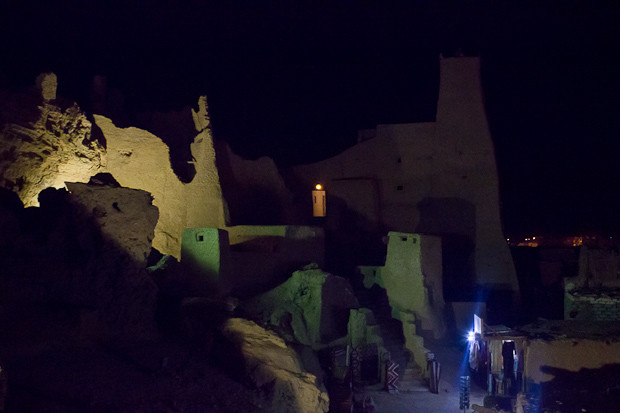
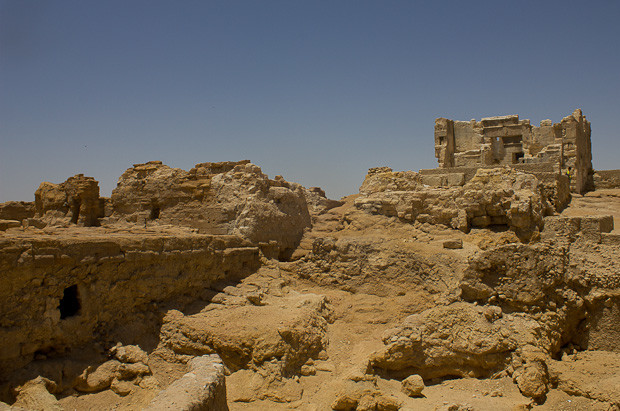
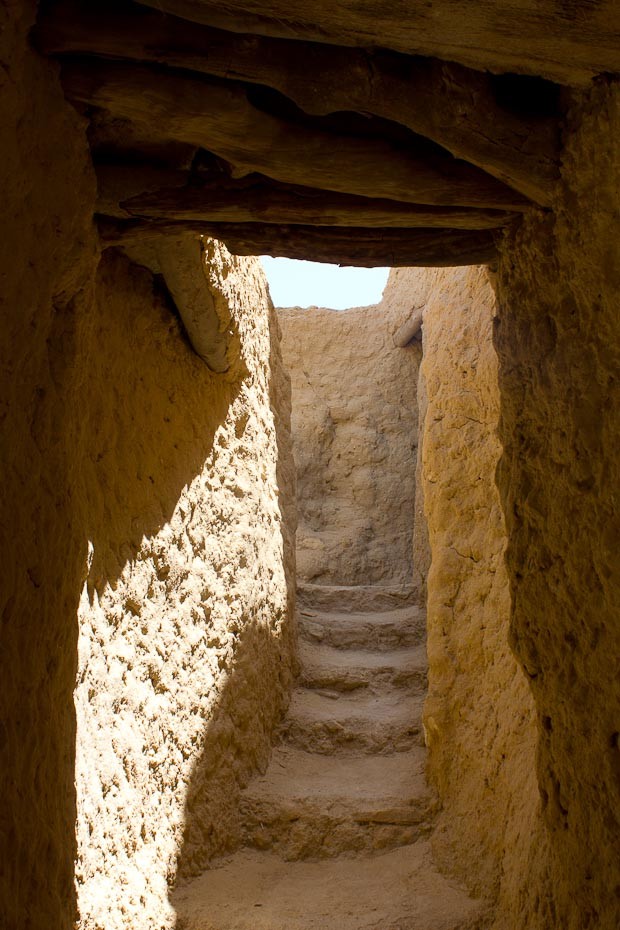
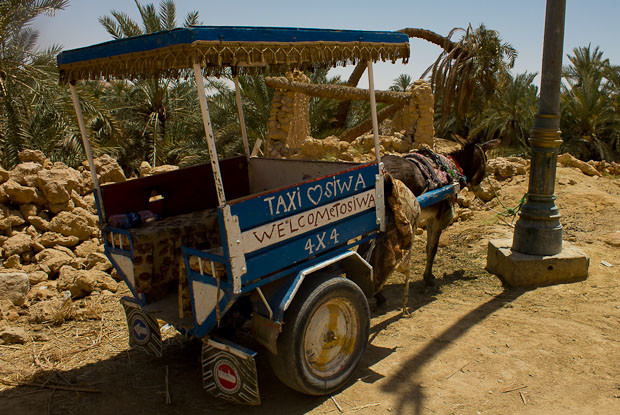
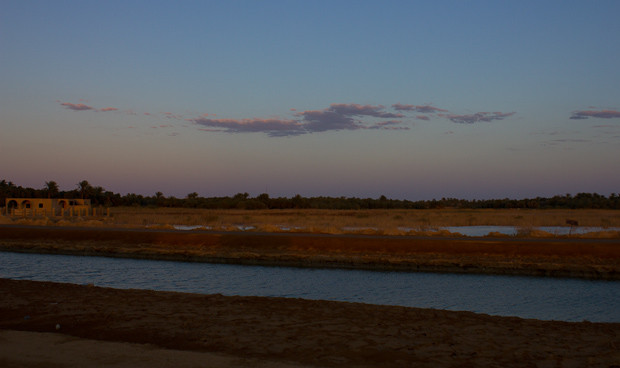
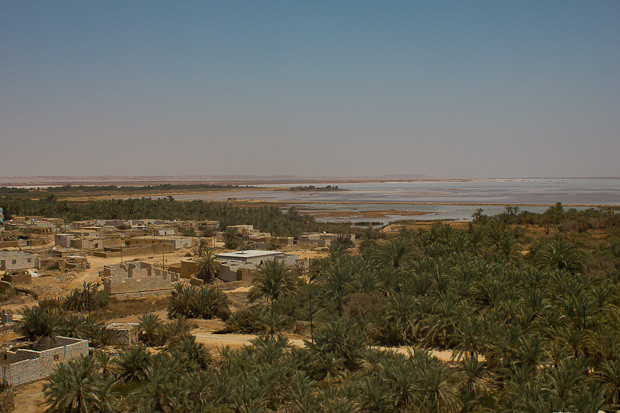
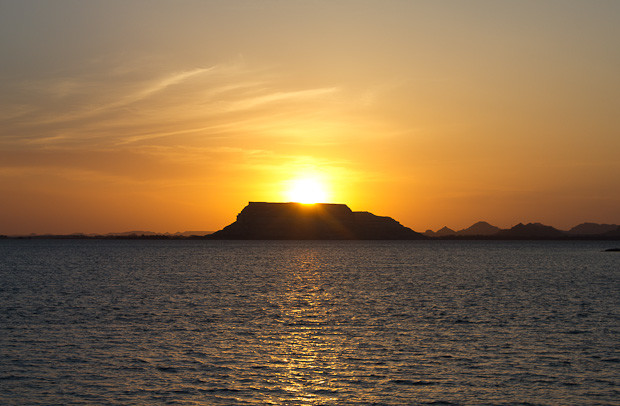
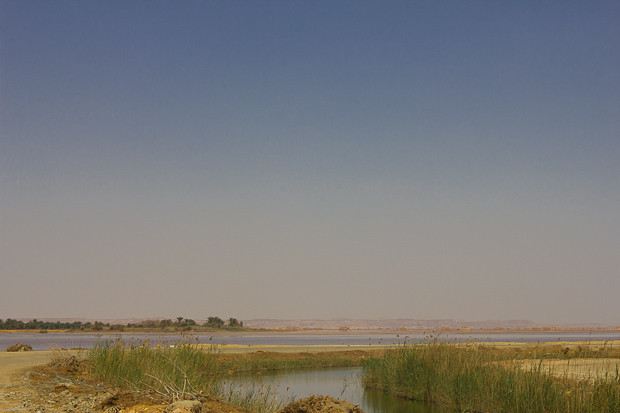
Wild west indeed!
I had to pull it up on Google Maps. Middle of nowhere and hundreds of miles from anywhere.
Excellent writing as always, and thanks for exposing to the truly “foreign” places of my world.
It’s a fantastic place, Justin. Not sure how it will be once you’re on the road, but it’s truly extraordinary. Also an amazing place for a desert safari, which we didn’t do in the end because, well, car crash stopped play. I’m sort of kicking myself about it, but rattling around in the back of a 4WD with potential head injuries didn’t seem like a good idea AT ALL…
That’s CRAZY. I always wondered what the border between Eygpt and Libya was like. You’ve just answered my questions to some extent… although I’m incredibly curious about your sources and how you know about the gay sex and the smugglers. Are you running with them or is this talk on the street?
The gay sex is a big taboo thing, so that came through talking to Egyptians and non-Egyptians, although I really did notice that no one was checking me out. (I thought it was because it was conservative, but I think it might also be the gay thing…)
As regards smuggling, one of the guys we were hanging out with was quite open about being a smuggler, and again, the smuggling thing there is an open secret among Egyptians. So… when I asked him whether he was one and what he was carrying he pulled out the pharaonic bronzes from the side panel of his car. To which Z said, “Where’s the guns?” (Travel is educational, let’s put it that way…)
I was seriously contemplating joining a run into Libya, but Z and I both felt that while we’d regret not doing it in a few years it was just too risky to do now… Were I in my teens or my 20s, and travelling without a child, I might be writing this from a Libyan prison 😉
The people I cite have been vaguely anonymised. But it’s pretty much from the horse’s mouths.
Sounds like some place out of a movie.
Very interesting and extremely well written post. I am enjoying my vicarious journey through Egypt with you.
Thanks, Leigh. It really does feel like a place out of a movie. I’m amazed people haven’t filmed stuff in the desert around there, although supplies would be an issue. I’m very, very glad we made it out here, although still itching to see the other oases…
i wanna go here!
Dear Theodora,
fabulous piece. really inspiring to get myself there. in fact, this post has made me decide to take my 3 kids to egypt for 2 weeks in october. thank you! Glad you are enjoying Jordan – i think your son will LOVE Wadi Rum. I took my kids there when they were much smaller and they still remember it (my youngest was not quite 3). xx
Thanks, Tanya: that’s great to know! Egypt is a HUGE place (hopefully it will be calm again come October), but I reckon you’ll have a fantastic time. I’d really recommend you try and get a bit of time in the Sinai, assuming things are OK there, as well as the monumental stuff, and, of course, a trip down the Nile.
Egypt in very beautiful in world but very sad condition in those days
Yes. It will be interesting to see how the Arab Spring appears in history.
Hello Theodora,
I hope your travels are safe.
I wanted to know if you could supply me with even more detailed information about Siwa?
I was considering going there and wanted to know more about the day to day, as well as the night to night, activity of the place.
Hiya, The main things to do in Siwa are swim in waterholes and salt lakes, explore the ruins of the desert castles, do trips out into the desert, stay at camps in the desert and explore palm groves and fruit farms. There is at least one organic farm that you can work on, if that takes your fancy, and some of the salt lakes are impressively buoyant. There are a lot of options for food, and accommodation options at a range of price points, from places with pools to backpacker type joints through to Adrere Adlelal, one of the world’s top hotels: there’s one desert camp with its own hot springs that’s especially magical at the budget price point… Theodora